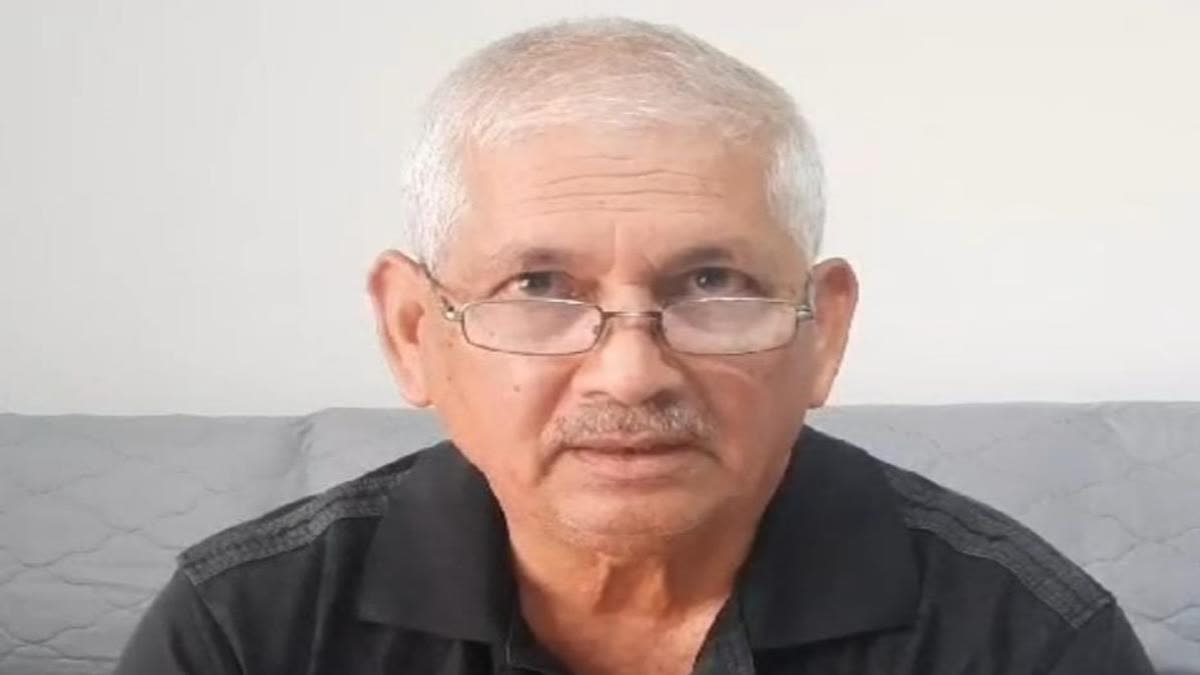Mumbai: "With every blow of the siren, we crawled into the dark bunkers built inside every house. There is no light, no food, no water - nothing," Avraham recounted. "We had to live in utter isolation, an endless wait until the all-clear signal was given by the civic authorities. Life here is no better than hell where every moment we had to live under the spell of death," in a heart-wrenching interview with ETV Bharat, Avraham Nagaonkar, a resident of Dimora city in Israel, recounted his harrowing experiences during the recent conflict with Hamas.
Avraham, who had spent fifteen years in the Umarkhadi area of Mumbai before migrating to Israel in 1969, provided a unique perspective on the trials and tribulations faced by Israeli citizens when their homeland comes under attack. As Avraham began to narrate the chilling events of the past week, he painted a grim picture of the situation in Israel. The air raid sirens have become a haunting part of life for Israelis during times of conflict.
In stark contrast to his earlier life in Mumbai, where sirens were rare and bunkers non-existent, Avraham narrated how, in Israel, every household is required to have a bunker for self-defence and alertness during emergencies. This preparedness is a result of years of living in a region fraught with conflict. Fortunately, the conflict had not reached Dimora city, which lies 60 kilometres away from the Gaza Strip.
However, the sudden attack by Hamas on Israel at 6:30 am on a Saturday morning caught many Israelis off-guard. "It was all of a sudden. We were not prepared, and so initially, the casualty rate was high," Avraham disclosed. "There are no records of deaths. Many are killed, and many more are being killed. Many are injured." Avraham's account painted a grim picture of the ongoing strife that has affected both the civilian population and the soldiers on the front lines.
Describing the incursion into the Gaza Strip, Avraham detailed the terrifying reality faced by Israeli citizens. "There are 22 villages in the Gaza Strip area, and terrorists entered these villages," he said. "The incident took place on Saturday morning around 6:30. At that time, we were given a siren. The siren had been sounded twice so far." His words conveyed the constant sense of alertness and the ever-present threat that looms over Israeli society.
Reflecting on his journey from India to Israel, Avraham shared that he and his family made the move in 1969. They settled in Dimora city, which had a population of around 30,000. He described the Jewish festival of 'Shabbat,' celebrated every Friday and lasting for 24 hours until Saturday. During this time, adherents are not allowed to eat, drive, or leave their homes unless absolutely necessary. "In short, there is no work to be done. Cooked food should be eaten only, and religious texts should be recited," he explained.
On the fateful Saturday of the attack, Avraham revealed that many people were at home due to the ongoing festival of 'Shabbat.' However, some young men organized a concert near the Gaza Strip. This event, which began on Friday night and continued until dawn, tragically became a target for terrorists who infiltrated from Gaza. Avraham sombrely stated that these terrorists entered the concert and killed nearly 400 people. The attack served as a stark reminder of the constant threat that looms over the region.
Avraham's son-in-law and nephew, who were still of service age, were called into action on the following day. "On Sunday, the day after the attack on Saturday, my son-in-law and nephew had to leave immediately for war," he said. "Every Israeli Jewish citizen is outraged by the attack on Israel. On average, one youth from each household has left for this war. This is a crisis for all of us. But we will fight till the end and win," he declared, his voice filled with determination.
As an Israeli citizen who has witnessed the ever-present conflict in the region, Avraham emphasised that the people of Israel stand united in their fight for their rights and security. "We are praying for the soldiers who are fighting for their rights," he said, revealing the deep sense of solidarity that unites the Israeli population during these trying times.



